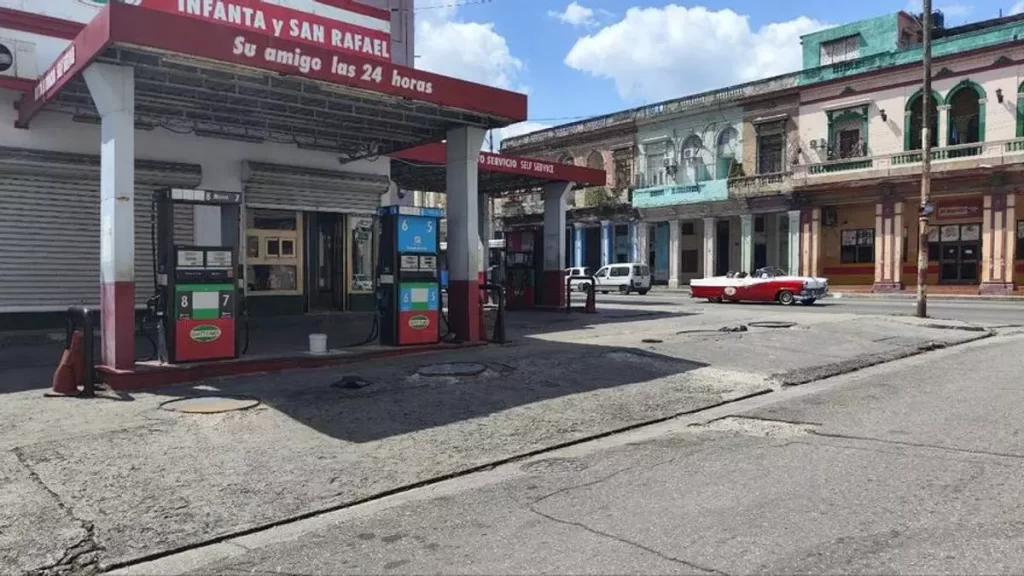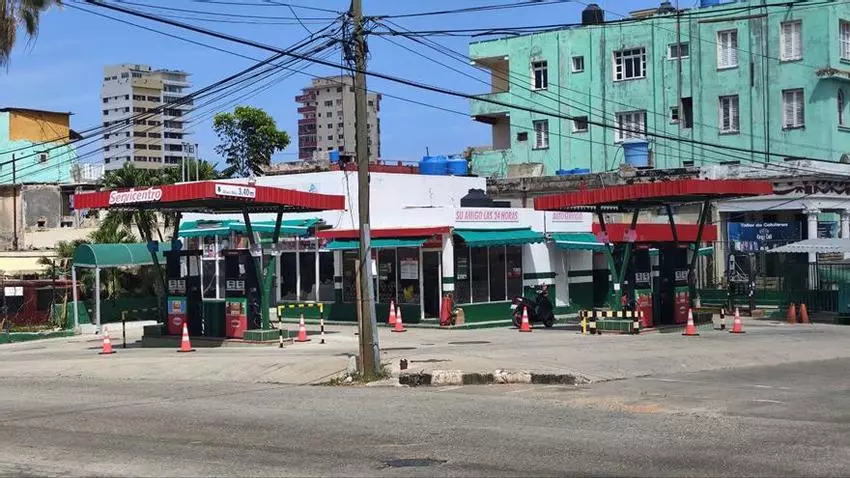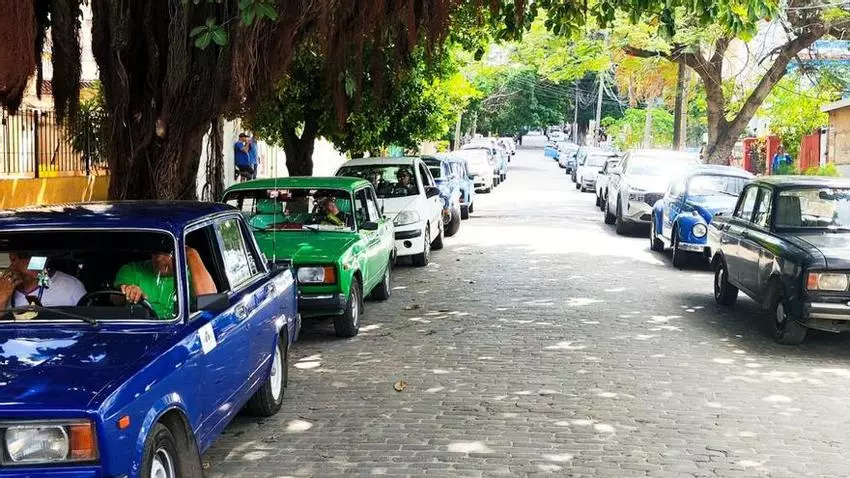
![]() 14ymedio, Havana, 28 February 2024 After being postponed due to an alleged cyber attack on the state financial company Cimex, two days before the dismissal of the Minister of Economy, Alejandro Gil Fernández, the new fuel prices, public transport and electricity rates will go into effect on March 1. Havana residents were trying to refuel this Wednesday but several gas stations were closed and a few others had long lines.
14ymedio, Havana, 28 February 2024 After being postponed due to an alleged cyber attack on the state financial company Cimex, two days before the dismissal of the Minister of Economy, Alejandro Gil Fernández, the new fuel prices, public transport and electricity rates will go into effect on March 1. Havana residents were trying to refuel this Wednesday but several gas stations were closed and a few others had long lines.
The service centers on 17 and L, in the municipality of Plaza de la Revolución, and San Rafael and Infanta, in Centro Habana, are not even dispensing fuel. The one in Tángana, also in Plaza de la Revolución, only had one dispenser working to serve the customers they have listed on a list of buyers.
Of the gas stations that this newspaper was able to visit in Havana, only the one on 25th and G was selling fuel and the drivers were milling around in a long line. On the outskirts of the capital, the person in charge of the Los Paraguas de Guanabacoa service center reported on her Telegram account that “the 8 thousand liter regular supply truck,” which should have arrived at 10:30 pm on Tuesday, ultimately did not arrive.
The ministers of Finance and Prices, Energy and Mines, the vice minister of Economy and Planning and the vice president of Cimex appeared before the official press this Wednesday to announce that the new prices will apply only to fuel sold retail: 156 pesos or 1.30 dollars per liter for special gasoline instead of 30 pesos; regular and diesel at 132 or 1.10 and engine at 114 pesos or 0.95 dollars (instead of 25 and 20 pesos, respectively). As wholesale rates remain intact, private transportation prices should not increase, they stressed.

“In the case of liquefied gas, the application of price increases is postponed,” Cubadebate explained in an article that summarized the statements.
According to Mildred Granadillo, Vice Minister of Finance and Prices, the Government chose the date of March 1 after Cimex managed, during the last month, to restore “the affected computer systems.”
For his part, the head of the same portfolio, Vladimir Regueiro Ale, assured that the Government is aware “of the impact that (the new rates) have” and admitted that they will affect “the entire economy.”
“To date, prices do not recognize the real costs the country incurs. They were outdated prices and generated subsidies for the State Budget. We know that this has consequences on the costs of production processes. The measure in itself has an inflationary impact,” the minister admitted, adding that “there is a group of decisions that mitigate its impact,” although he did not explain which ones.
These “corrections” were also mentioned by the Cuban economist Pedro Monreal, who, following the announcement, criticized the measures on his social networks. “A distortion is ‘corrected’ – energy prices misaligned with the real cost – that would have transversal effects, increasing the distortion of salaries misaligned with the cost of living. Whatever they say, the ‘corrections’ impoverish the citizen,” he stated.

The intervention of the Minister of Energy and Mines, Vicente de la O Levy, was, for his part, a string of justifications about the State’s need to increase prices. “This measure is not to raise money, nor does it eliminate subsidies,” he assured, adding that “it is an issue that seeks savings,” while explaining that the way to guarantee the “resupply” of gas stations is to establish “a small chain of service centers in dollars for tourists and foreigners and eliminate the subsidy for foreigners.”
Fuel shortages, however, remain the main problem for the portfolio. “Cuba had these demands assured by international agreements, but import volumes have decreased for different reasons,” said De la O Levy. According to state data that were taken up by the minister during the conference, the Island needs about 8 million tons of different fuels annually, of which about three million are produced in national refineries, the rest is imported.
A critical case is that of gasoline, the import of which has been increasing in recent years – 126,000 tons of gasoline imported in 2021, 192,000 tons in 2022 and about 203,000 in 2023 – but it cannot cover the annual demand, which amounts to 360,000 tons.
In turn, this fuel is the one most demanded by the private sector, which consumes 71.5% of the 21,700 tons that were imported on average each month during the past year. Another need “impossible to cover” for the State. Diesel imports, with greater state consumption, have also fallen, “and that is felt in the economy,” declared Cubadebate.
Regarding the increase in the electricity rate for “high consumers,” the 25% increase is maintained for those who consume more than 500 kilowatt hours, said the minister.
Translated by Regina Anavy
____________
COLLABORATE WITH OUR WORK: The 14ymedio team is committed to practicing serious journalism that reflects Cuba’s reality in all its depth. Thank you for joining us on this long journey. We invite you to continue supporting us by becoming a member of 14ymedio now. Together we can continue transforming journalism in Cuba.
